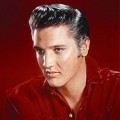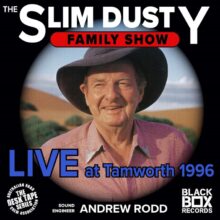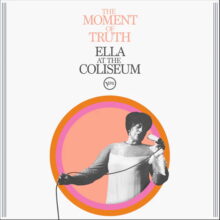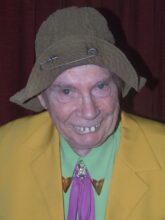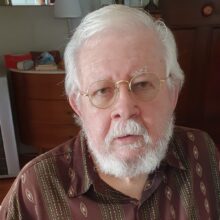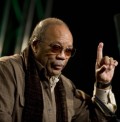In 2001 I had the pleasure of interview Sam Phillips, the founder of Memphis Record label Sun Records. Sam produced the first records by Elvis Presley, Roy Orbison, Jerry Lee Lewis, Carl Perkins, Johnny Cash, and Howlin’ Wolf.
The interview tells a remarkable story.
Sam died in 2003. Here is my interview with the legend from 2001.
Starting a studio and founding a record label in the early 50s was a bold move. Sam Phillips did it though. The decision for his career path also changed music history and created the template for what became rock and roll.
Sam Phillips was the founder of Sun Records in Memphis. His star signing was an unknown local truck driving lad named Elvis Presley. Sam also launched the career of BB King, Ike Turner, Johnny Cash, Jerry Lee Lewis, Carl Perkins and Roy Orbison, not a bad collection of new talent.
Of course, that was 50 years ago, half a decade, and the name Sam Phillips is now recognised as one of the most important names in the American Music Industry, ever.
As a recognition of his fabulous career, Executive Producer Phil Carson gathered up a whole lotta music acts to pay tribute to the man. The album “Good Rockin’ Tonight” places artists as diverse as Bob Dylan and Kid Rock together on the one album. It features matchbox twenty, Live and Sheryl Crow from todays crop, but also Paul McCartney, Page and Plant and Van Morrison, all now superstars of the rock era.
They did it for Sam. Noise11’s Paul Cashmere talked to the man who started it all, Sam Phillips.
Paul Cashmere: Let’s go back to 706 Union Avenue, Memphis then. You were the one who said “we record anything, anywhere, anytime”.
Sam Phillips: That’s it. That’s for sure it.
PC: Was there anyone you did not knock back or did you stick with the company motto?
SP: It wasn’t a label to begin with. I didn’t start Sun Records until 1952, early 1953. I didn’t want to start a label. I wanted to scout the talent that I knew was here in The Delta, especially black talent. Basically, I had that motto as way to keep the doors open, weddings, funerals or anything else I could. I also worked at WRAC, the CBS radio network here and so consequently it began to do OK. I recorded songs for Chess and Checker. Then of course first of all BB King and I recorded as well as Roscoe Gordon. Then we decided to start Sun Records in the latter part of ’52, ’53 and that’s how it all came about. But I did have in mind at the beginning when I opened the doors at 706 Union (in a little store front building) that I really wanted to experiment with the people that didn’t have an opportunity to go anywhere to record. I knew that there was an abundance of potential talent in this general area of the Deep South. I was born and raised here, 150 miles east of Memphis. Therefore I wasn’t worried as to what was potentially out there. It was just a question of how I was going to merchandise it. I also knew that I could get out of the people, even though they were untrained, untried and unproven, whatever they had. If it was something that I felt was worthy of being a record, then I felt I was the one who could do it more than anybody. I have always had a lot of confidence in my ability to discern people and also their potential once I heard them.
PC: It was a bold career move for you in the late 40s, early 50s, because there wouldn’t have been that many studios on the entire planet.
SP: No, it was extremely bold (not that I am all that brave) but I had two young children. At that time my mother was real sick and I had a deaf mute aunt. My father had died in the 40s and so (as I had) a wife and two young children, I had a very good job putting the bands on from the Peabody Skyway at WRAC radio here and the CBS network. It really was with the conditions of the black and white situations in America, especially the South. I will have to say I knew what I was getting into and I gladly took that chance.
Paul Cashmere: So anyway one day in 1953 in walks a kid called Elvis Presley. How vivid is your memory of that day now?
Sam Phillips: My memory of all these things in general is very good, Paul. I remember first I saw Elvis through the window when I was back in the control room. I was working on a tape that I had cut on BB King. I saw him through the front glass store front window. He had passed there in a little pick-up truck a number of times working for the electric company. He came in and Marion who worked part-time for me brought him back. He wanted to make a personal record. I remember the first day I laid eyes on him, that day was so busy I would not have taken time to have done. At that time I wasn’t doing many personal things. I was doing the cuts on BB King and Little Junior Parker and people like that, and Roscoe Gordon and a number of other black artists. Jackie Brenston who was in Ike’s band was doing an awful lot of auditioning. I probably would not have taken the time but when she brought him back and I saw Elvis, he was just an unusually decent, wonderful looking young man at that time. I just couldn’t say no to him, so I made that little personal record for him for his mother’s birthday.
PC: And that record cost what, $3.98 to record?
SP: That was for one side or $4 for two sides. He could have had a free audition, it wasn’t a question of that. He was such an unbelievably modest human being. He also knew of the free auditions that we gave, black or white. What actually lead him to doing the audition was “Mystery Train” by Little Junior Parker. It was a big hit on Chess Record. He really liked it and chased down where it was done and all this stuff. He later told me that was the main reason he got up enough courage to come in and ask if he could make a record, period, even though he was paying for it.
PC: When you compare the cost of what he did pay for that compared to that of his recent ex-son in law Michael Jackson and what he spent on his last album, $60 million, there is quite a difference.
SP: (laughs) quite a bit of difference Paul, no doubt.
PC: What about the first time you heard Elvis sing. Did you actually have a vision for how far his career would take him?
SP: Well we had no idea that he would achieve what he did of course. I never had any feeling of not being perfectly satisfied with whatever decision I made. That doesn’t mean every record that I cut or auditioned that I made the right decision on every person, because I auditioned a lot of people all over the years. At the same time, sound was something I truly loved, something that I knew an awful lot about, so far as the sounds of the south. I’m talking about black blues, I’m talking about black gospel, I’m talking about white gospel from the south. I am talking about “hillbilly music” from the south. I am talking about, period, a lot of excellent musicians that never had played commercially, that never could read a note that I ran across as a child coming up through the years in Alabama and later on here in Memphis. It was one of those things that I had an opportunity to see what was out there. All of the people, just about every one, had never been in a recording studio that came in. I wasn’t interested in recording people that had already made records. Mine were kind of kind of laboratory kind of thing that I wanted to do and see what I could do with it, see if I was right or see if I was wrong. My conception of what I believed was out there. All it needed was an opportunity to work with them in a proper way, both black and white.
PC: There is a term Alternative Music that is quite popular these days. I would have imagined that what you were doing then was the very first alternative music. Go back to 1954 and Perry Como was the biggest male star on the planet and Doris Day was the biggest female pop star star.
SP: That’s correct. By the way, she was still one of my favourite persons, and artists at that time, as well as Como and Dean Martin. I loved music, period. I loved putting on the big bands. When I came to Memphis in 1945 I was only 22 years old and when I got to put the big bands on the Peabody Skyway every night from 10.30 to 11 o’clock onto the CBS Network, not just the local station. They picked up on me, my employer, and two years before that I thought I’d never even see a big band in my lifetime. That’s the truth, working on a little 250 watt radio station in Alabama. Actually, I think that God gave me a talent that was spotted by other people in addition to what I believed of myself.
PC: Would it be right to say that you were the first alternative person in the music industry?
SP: I think that I definitely was part of a fantastic element of the total roots and I would say the trunk of music. If you go back 50 years to the early 50s and middle 50s and even on this great record that they have put out here, Good Rockin’ Tonight, it is so basic, it is so true to form yet it does not cast itself in any particular way, that this was arranged this way or the other. I have nothing against those types of things because arrangements are necessary. But that time and that day, the freedom to do what you wanted to do with somebody that knew what to do with the knobs and microphones and knew what they were hearing, this is what was necessary to do what I did, period. In my honest opinion of this thing, Paul, if I had not had the patience, believe me, it wasn’t like it is today where you get a hit and you sell millions, we didn’t do that much then. But at the same time I stayed with this for 5 years before we really proved what we set out to prove. It wasn’t an overnight thing. It was a conceptual thing that I had felt for many years, not knowing what it would take it would prove to myself one way or the other. The only thing I could say along those lines is that for sure, had I not tried this, even though it was very difficult to do and to keep my job, and work 18 hours a day between the two jobs and make sure I didn’t starve my family and my mother and my deaf mute aunt. It really was forks in the road, and I had to make up my mind that I wanted to do it and that I wanted to do it bad enough but at the same time punish anybody for the fact that this is something I believed so much in that I was going to punish someone that was innocent and a bystander like my family, I took that chance and it nearly caused a nervous breakdown later on in the middle of 1951 but I went ahead and did it anyway.
PC: What would have happened if Elvis had walked in to some other studio instead of yours at that time. Have you ever though about your future and how it would have been different and his future, how it would have been different?
SP: Elvis loved southern gospel quartet music, you know now the Blackwood Brothers, the Stamps Baxter quartet. There was the Rangers Quartet. There were a number of different quartets. He loved quartets, southern white gospel and I think he would have wound up in a quartet and probably might not have ever auditioned as a soloist of his own. I personally think that because he really did honestly love gospel music as much as anyone had ever known. I knew a lot about gospel music because my brother had delved into quartet music, and I actually sang in a quartet or two when we were kids and young adults. It was something I could understand exactly where he was coming from when he came in. I don’t think Elvis had any idea. I truly mean this, that as much as he would have liked to have done it that he would wind up being a solo “pop artist” let alone what he ultimately became.
PC: Every now and then geographically something musically happens. 10 years ago it was Seattle. Is what happened 50 years ago in Memphis similar to the combustion that happened in Seattle?
SP: The south was made up of some of the finest blues singers. I’m talking about not just black blues singers but I’m talking about country blues singers. Because of that there was a thing called bluegrass which came along in the 40s mainly because of Bill Munroe. All of these things were a certain amalgam of the Deep South and its true belief and the forms of music and the lives that lived in this particular section of the country. During the hard times, the days of the depression between 1930 to 1941, when the war started, this was absolutely the greatest thing that we had in the south, our music. Live string music that no-one cared to record, but I would say it was the thing that kept so many people going, doing this music for free. On the weekends you could go to a dance for free. There was so much going on in the country churches, both black and white. All this I had noticed all of my life and grew up in it. It had a certain fascination to me much deeper than thinking I could make a record and get rich. I think that was the case about everyone of the artists that came into my studio both black and white. They just wanted an opportunity to be heard and they thought they would never get it. The big difficulty about that though that the people were so scared, an audition was the toughest thing in the world to do anyway, but if you think “if I fail this, I’ve never had this opportunity before”, that would be more difficult. So it was a psychological thing just as much as it had to do with the physical things.
PC: You mentioned Bill Munroe there, and of course Bill had the bluegrass classic “Blue Moon of Kentucky”. You are responsible for taking that bluegrass standard and turning it into a rock and roll song aren’t you.
SP: Absolutely. Yes sir. I helped Elvis out on this and also ‘That’s Alright Mama’. I didn’t know he even knew this song. We were going through one of the rehearsals one night (it wasn’t what you would call a formal rehearsal). We would come in, this is how I worked with the people, it was more of a relaxed atmosphere. We went through this and we were about through that night because nothing was coming off. He kept his guitar on around his neck and Scotty and Bill Black had put up their instruments. Then Elvis started on “That’s Alright Mama”. Well I didn’t know Elvis knew that song because it had been a hit by Arthur ‘Big Boy’ Cruddup, a black artist here in the south, 6 or 7 years before that. Man that was what I was looking for all along. All of the auditions that we had done which had been a number before we actually cut ‘That’s Alright Mama’. This came simply by him playing around with a guitar and I heard this. Then I knew we were absolutely on the right track and that this cat could do it.
Paul Cashmere: The new version of ‘That’s Alright Mama’ on “Good Rockin’ Tonight” is by Paul McCartney.
SP: Oh man he tears this up, its really good. This record, I would be very critical of it, good or bad, because it represents a whole lot of my life. I am so indebted to all of these people that gladly went in and did these things and to hear what is on this record, I just could not be more pleased. If a person doesn’t have this in their catalogue of music, I think they are missing probably what is one of the genuine bases for later was to pass. I won’t try claim that I did this, that or the other. I just simply know that this is the stem from which so many branches of music came, that got to hear of younger people and later of course older people. It is what changed “the whole face of music around the world”. There is no question about this. It is just an outstanding piece of work on the part of every one of the people who worked on it.
Paul Cashmere: You must have been honoured by Paul McCartney agreeing to participate in something like this.
SP: Well it certainly is. I’m a fan of so many of them on there. To have them do it with the feel and essence by which they did it and the way it came off, I could not be more pleased. It has to do with my life and my life’s work. When I say that, I’m not trying to sell records or anything. I’m just saying that it is an outstanding record that tells so much about where the music started half a century ago.
PC: It even defies age categorisation. We have an album here that features Bob Dylan and Kid Rock on the same record.
SP: That’s right, that’s exactly right, that’s right, that’s right. It broke down so many fences of segregation and echelons of music in addition to blacks and whites. I’m so glad I participated because at the time I didn’t set out to revolutionise it other to do the thing that I hoped to have the opportunity some day to try. It just made us all better to make us understand what music can do for us at any age, or any nationality at any place on the planet.
PC: One of my favourite tracks off the album is the Live version of “I Walk The Line”.
SP: The whole album, I’m just telling you, I had nothing to do with it, Paul. I told Phil Carson if I don’t like it that doesn’t mean that I won’t be proud you did it, but if sure am going to let you know. But if I do like it I will. I’m being very honest I think it is one of the outstanding treasures of recorded music. We didn’t try and do things out of the field and plummet things up, but at the same time there is so much of the essence of everything we stood for at Sun Records and that was so well accepted by so many people around the world over such a long period of time. and still being accepted. This is just something I am so pleased with and I really don’t know how to express the gratitude I had in my heart for all that they did on this record.
PC: Do you know the story behind Van Morrison and Carl Perkins “Sitting On Top Of The World” because I understand this was the very last recording Carl made before he died.
SP: I think so. I don’t know that much about it. I didn’t not record that with Carl, but that is one of the outstanding tracks on the album. You can hear the relaxed feel of Carl on that thing. These are what I would say would light up anybody’s emotions to this type of music. I can truly say hearing Van and Carl, it’s just an outstanding track. The personality of Perkins shows so well on it and I am so happy for that, especially now that Carl is no longer with us.
PC: I guess most people associate you and Sun with Elvis but in actual fact the music on is covers of songs by Johnny Cash, Carl Perkins, Jerry Lee Lewis. There is a whole lot of talent that you had come through Sun.
SP: Yes it is. The people that have let me know that and it is gratefully received but at the same time I do know that I don’t want anyone to know for one minute that it wasn’t a real labour of the part of all of us. To stay with it and not give up on something that you truly believed in. Back then I had to travel in my car (and we didn’t have interstates back then, everything was two lane) from Maine to California. You just couldn’t open up a little record company and I never wanted to be in the manufacturing business. That’s why I wanted to work with other record companies and do strictly the talent end of it but it didn’t work out. When I got through with my work and auditioning and cutting the sessions and all of the mechanical work that went with it, I had to hit the road and promote it and I couldn’t give up. It was such a long story that when I get around to writing my book it will be a fascinating thing for people to see what we had to do then for this to survive and to prove itself one way or the other.
PC: When did you sell Sun Records and why did you sell?
SP: I sold it in 1969. Actually that time I had been approached by a number of labels to buy artists and to buy the label itself and the artists that came with it. I didn’t want to sell to a major company. By then, Paul, the major labels were making guarantees to the artists when their contacts were coming up to be renewed. These were people that I had worked with from scratch. I couldn’t blame the artist for taking the offer. When Shelby Singleton wanted to buy it, he had just started his own label SSS and a couple of other labels, and I had a lot a lot of confidence in him and his brother too. I decided to go ahead and sell to them because I wanted to stay with an independent and stay with somebody who knew and loved what we had done. The reason I did that in all honesty was that I knew that the handwriting was on the wall but that Shelby had a better chance to merchandise and if he never put out another record on Sun that he would be in there fighting to keep it alive as long as he had it. That was the main reason I went on to sell to Shelby instead of to a major company.
PC: Did you ever have any regrets for selling the Elvis contract in 1955?
SP: No, I didn’t. A lot of people think I’m lying when I say that. Of course, had I know then what I know now I wouldn’t have done it. But at the same time, at that time I had “Blue Suede Shoes” in the can and I knew that nobody in the world knew that expect Carl Perkins and myself and I just felt real strong about Blue Suede Shoes and I couldn’t get anything for Carl, period. I had been approached by a number of people for Elvis and I really needed the money badly just to keep Sun Records going. You couldn’t borrow money on a label at that time. I don’t care what anybody says. It was such a precarious venture, you couldn’t borrow money at all on a label It was just something you couldn’t do. I don’t give a damn what Armet Ertegan said. I didn’t know he was trying to buy Elvis too and said that he could have borrowed money on it but he couldn’t, Armet couldn’t have. At that time independent labels just didn’t have the clout to finance themselves, so you had to go it alone or you weren’t going to make it at all until you proved a lot of times that you had what it took.
PC: And congratulations. You were the first non performer to ever get into the Rock and Roll Hall of Fame.
SP: Yes, I was the first to go in and I’m also the first (that I’m very proud of because it took a long time), the Country Music Association Hall of Fame in Nashville, they would not vote me in for years, because they thought I was trying to do country music in. I was born and raised on the Grand Ol’ Opry and Country Music. Even if I had the ability I would not have attempted to have done country music in because I drew from it heavily and hillbilly music and black music and that was the basis of Sun records all along. Finally, I am the first person to be put into the Rock and Roll Hall of Fame and the Blues Hall of Fame which is here and LA, and now the Country Music Hall of Fame. I’m the first person to be in all three of them for a performer or non performer.
PC: It really will be a fascinating book one day Sam.
SP: Yes it will but not because of Sam Phillips but because of the dream that we followed for the reasons that we followed it. That’s why it will be important, Paul
Be the first to see NOISE.com’s newest interviews and special features on YOUTUBE and updated regularly. See things first SUBSCRIBE here: Noise11 on YouTube SUBSCRIBE
Follow Noise11 on Social Media
You’ll discover music news first following Noise11 on Twitter
Comment on the news of the day, join Noise11 on Facebook


